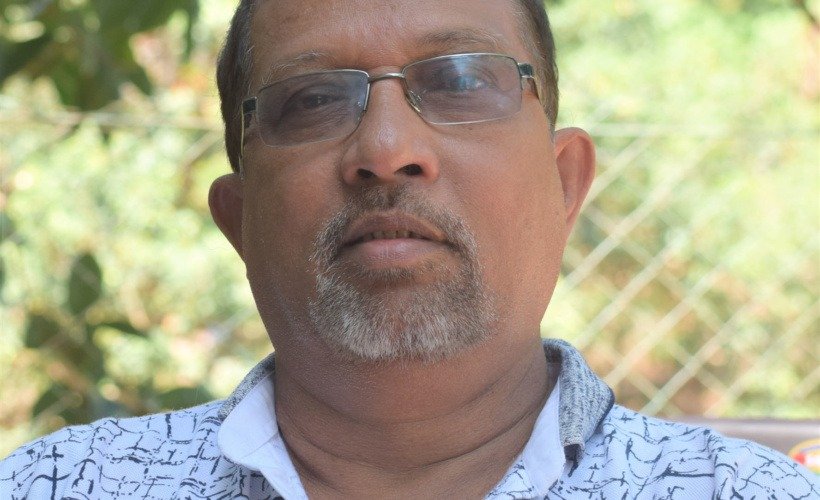
Radharao Gracias is known as a firebrand advocate and political activist
With around four decades of law practice under his belt, Radharao Gracias has made his presence felt in the field of law while simultaneously creating and maintaining the image of a political activist of a rather garrulous nature.
Born and brought up in the quaint village of Majorda, Gracias believes that it is his independent streak which made him averse to working under an authority. Hence law appeared to be a natural decision, particularly in the mid-seventies of the last millennium, where the choice of professions in Goa was fairly limited.
Gracias began his practice by standing up to all the established lawyers who soon realised that he refused to be pushed over. Under such circumstances, he was able to obtain the respect of both the advocates as well as the judiciary. So, thus he taught himself the first lesson as a young lawyer – to remain firm. However to put this lesson in use, the lawyer must come well prepared with facts and the law. When that occurs, the opponents as also the members of the Bench begin to give you respect.
Being a part of the legal practice for four eventful decades, Radharao considers himself fortunate to have been able to practice both with advocates and judges of the old era as also of the new post-liberation era.
“Both the advocates and judges who began their careers in the Portuguese era were a class apart in matters of behaviour and courtesies. Of course, in those days both the judges and the lawyers came from the upper classes,” he states.
Gracias began his practice by standing up to all the established lawyers who soon realised that he refused to be pushed over. Under such circumstances, he was able to obtain the respect of both the advocates as well as the judiciary
During the period of the Liberation of Goa, the lack of faith the Government had in local advocates was displayed when most newly appointed judges came from outside the State and had little knowledge of or love for the land whose legal destinies they presided over. For most of them it was an employment rather than a matter of delivering justice.
The setting up of law colleges in Goa began to also mean that legal education was now available to everyone and became mass based. Unlike other professions, where there is a qualifying exam, nearly anyone with average marks can join a law college and end up with a degree a few years later. “As a result”, articulated Gracias, “the profession is saturated and the quality of lawyers is on the decline. But I must add that in recent times we have been getting some pretty good judges being appointed, but this is not to say that some sub-par individuals are not appointed on the Bench.”
According to Gracias, “today, sadly advocacy has become a matter of brokerage rather than law to a good extent. Practically in every segment there are lawyers who are known to be match fixers particularly in collusion with the police. It is common knowledge that moment a case is registered, the police themselves will recommend a lawyer to be engaged. Once that is done, the manipulation of the investigation begins. It is for this reason that there is a large scale acquittal of criminals. Obviously, the judicial officers can do very little when the investigation itself is manipulated.
On the revenue courts, less said the better. There are agents hanging around the office of the revenue courts offering justice in such matters as mutations, partitions and the like for a consideration. If one does not go through the brokers, the cases are delayed indefinitely. Unfortunately, quite a few lawyers are also part of the racket.”
With the experience he has managed to garner over the years, Advocate Gracias has noticed that generally, the studious and academically brilliant students rarely make good lawyers. Being a lawyer, he says, is much a matter of knowing the law as also being street smart. Specific skills required in criminal law is the art of cross examination wherein you can confront a witness and take him to a destination where you wish to. Such skills are also necessary and important in civil law but to a much lesser extent as oral evidence in civil law is not as much material as in criminal law. A lawyer must also be able to think three dimensionally – and foresee the pitfalls he may encounter in the course of the trial.
To Gracias, “the future of young lawyers depends on their ability to articulate as well as their command over the English language. Lack of either of these skills results in extremely poor drafting of legal material.. It is particularly important that lawyers read in English if they wish to practice law in Goa. You are judged by the manner in which you present the case – which you cannot do well unless you have mastery over the language”





